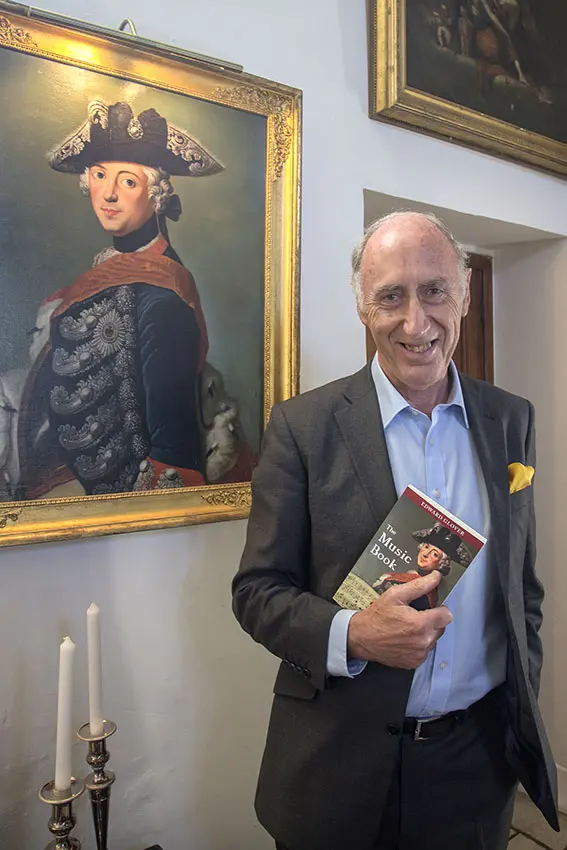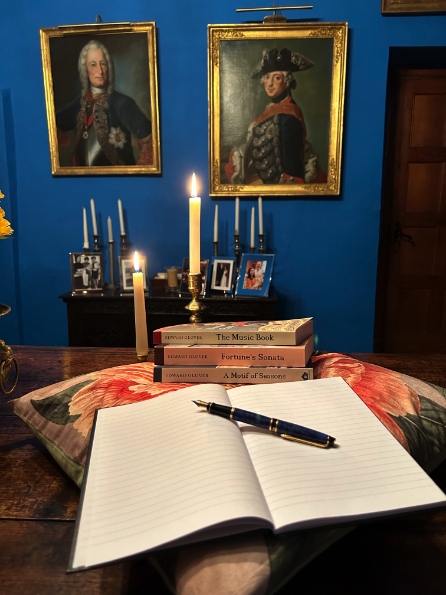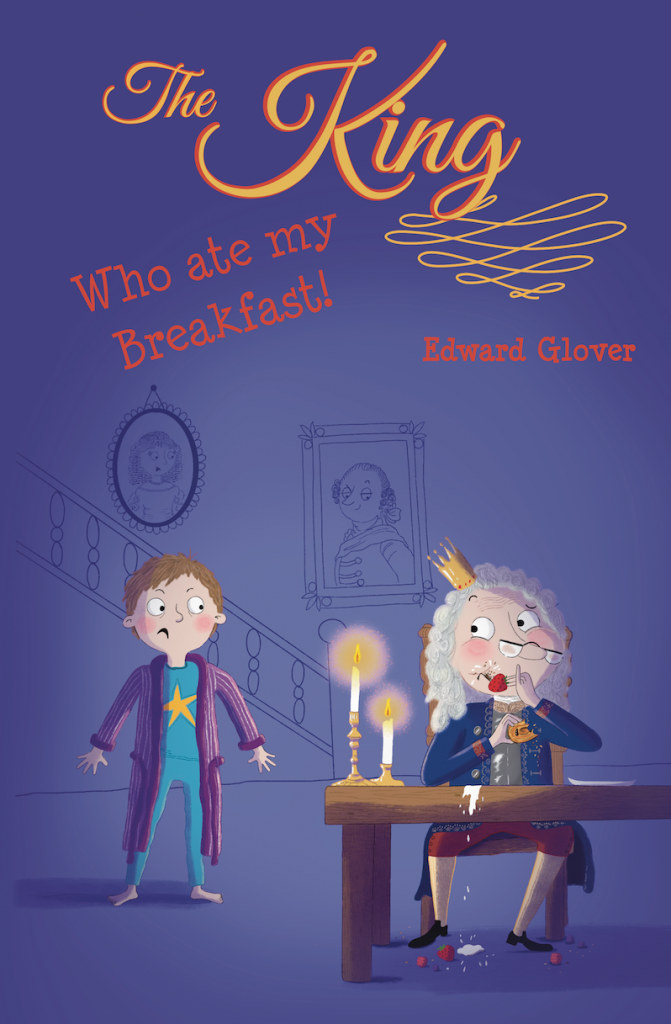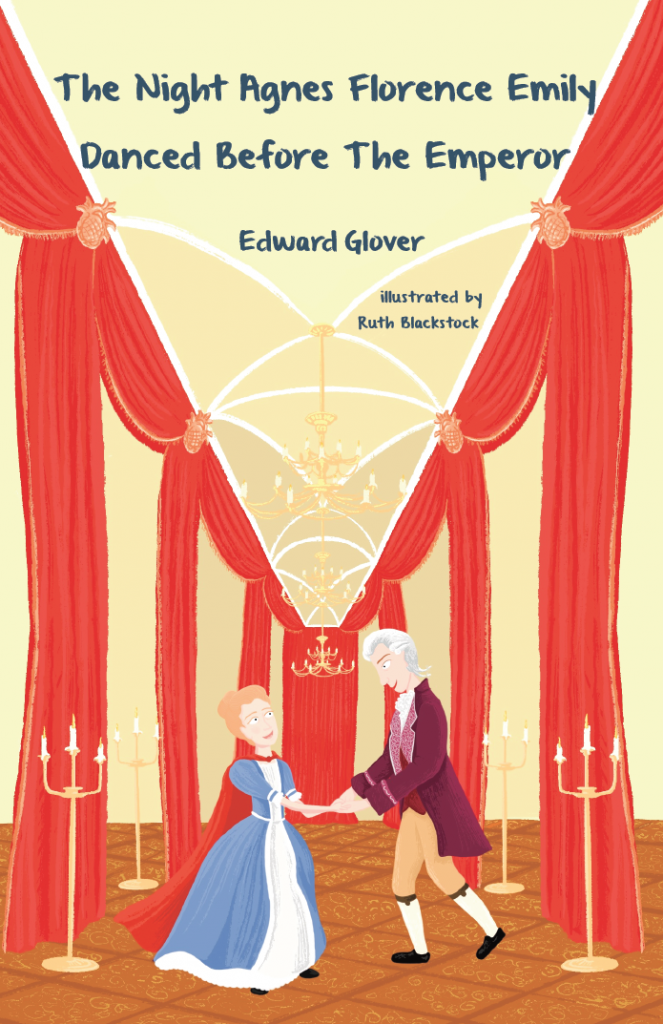The history man
18th July 2024
It’s 10 years since retired diplomat-turned-author Edward Glover published his first novel, The Music Book; five more historical works followed. Now this North Norfolk based author has turned his attention to children’s fiction – get set for exciting time travelling adventures!
After a career in the British Diplomatic Service, Edward Glover embarked on a new chapter in 2012 which saw him publish six novels in six years. Drawing on a lifelong interest in 18th century history, baroque music and art, Edward was inspired by the purchase in Berlin of two paintings and the discovery of a 19th century British passport to try his hand at historical fiction. The resulting Herzberg Trilogy (The Music Book, Fortune’s Sonata and A Motif of Seasons), which fittingly begins in Norfolk, tells the story of two families – one English and one Prussian – linked by marriage, spanning from the mid-18th century to the First World War.
A visit to Nuremberg war crimes court in 2016 inspired his fourth novel – The Executioner’s House – set in Berlin against the backdrop of the aftermath of the Second World War. The Lute Player, inspired by a visit he made to Palestine in 2017, takes the reader back to the 18th century, whilst his most recent novel, Dark Obsession, is set in Paris and Indochina, in 1875.

Latterly though, Edward has been writing for younger readers, but with history still front and centre for his time travelling characters:
‘I still work part-time as Chair of the Foreign, Commonwealth & Development Office Association based in the Foreign Office in King Charles Street and also edit a FCDO-related magazine Inside Out. But writing books is my greatest pleasure. The themes come easily and the words without difficulty.
‘I enjoy writing adult fiction and I’m currently working on a seventh novel which I hope to finish later this year. Meanwhile, writing short stories for children inspired by my grandchildren is a pleasant diversion from my daily work and the rigour of adult fiction.’
He continues: ‘This current divergence into writing for children has given me particular pleasure because it’s an opportunity to try to understand better a child’s mind, to get a glimpse of their view of this utterly unpredictable chaotic world and particularly how they perceive us adults. And time travel is an excellent means of telling young children a little about history.’
Edward’s first children’s book – The King Who Ate My Breakfast – was inspired by his grandson and tells of a boy in search of ‘imagination’ to help him with his homework. King Ludwig XI of Hesse-Darmstadt and King Louis XIV of France feature, as does a trip through the night in a winged chariot pulled by eight horses to the Sun King’s Palace at Versailles – and a game of cricket!
‘We’ve all heard young children being urged by tedious adults to use their imagination – whether by writing a story for school homework or finding something inspiring to do other than internet games,’ says Edward. ‘Yet it struck me that a child might not know what imagination was – what it looked like, where to find it and, if found, what to do with it.

‘When my grandson, who always gets up early, came to stay with us in Norfolk one autumn half-term with several holiday homework tasks to complete, I realised I had the makings of a possible story. Particularly if I drew on some of the historical paintings in our dining room and the fact that my grandson much enjoys pain au chocolat – a treat he rarely has at home.’
Edward’s second children’s book – The Night Agnes Florence Emily Danced Before the Emperor – was inspired by his granddaughter Agnes, who is autistic. The book was read in draft by a member of Ambitious About Autism’s youth network and given a very positive review.
Agnes Florence Emily is transported back to the winter of 1788 and a masked ball at the court of Emperor Joseph II in Vienna, with Mozart as her guide.
‘I wanted to salute my granddaughter’s endearing character and resolute courage with a short bedtime tale highlighting the importance she attaches to predictability and assurance in her daily routine; clarity of purpose; peace – not being overwhelmed by noise – and, above all, the value of hearing soothing music. Moreover, it needed to be a story she might enjoy, one that might have a particular meaning for her.
‘I also wanted to feature Wolfgang Amadeus Mozart because listening to his music is often a calming element at stressful moments in my granddaughter’s daily life. Moreover, I too enjoy listening to Mozart at the end of a busy or tiresome day. But there was another reason for including the composer in the storyline. With autism now more widely understood, we have become aware of historical figures whose legacies suggest they might have been on the autistic spectrum before diagnosis was possible. In the musical world, Mozart is thought by some to have displayed signs of autism.’


Edward’s latest book – The Five Adventures of Romilly Esmeralda – aims to help children overcome their fears. It tells of young girl who doesn’t like her feet leaving the ground; of a magical unicorn; and a quintet of exciting journeys, taking our young heroine from Tudor times to hot-air ballooning at the Palace of Versailles in the 18th century, through to the 21st century.
Back in North Norfolk and summer 2024, Edward continues work on his seventh novel for adults. Where will ‘the history man’ take us next? We’ll keep you posted!

Edward Glover’s three children’s books are all published by Blue Falcon Publishing and available via bluefalconpublishing.co.uk





